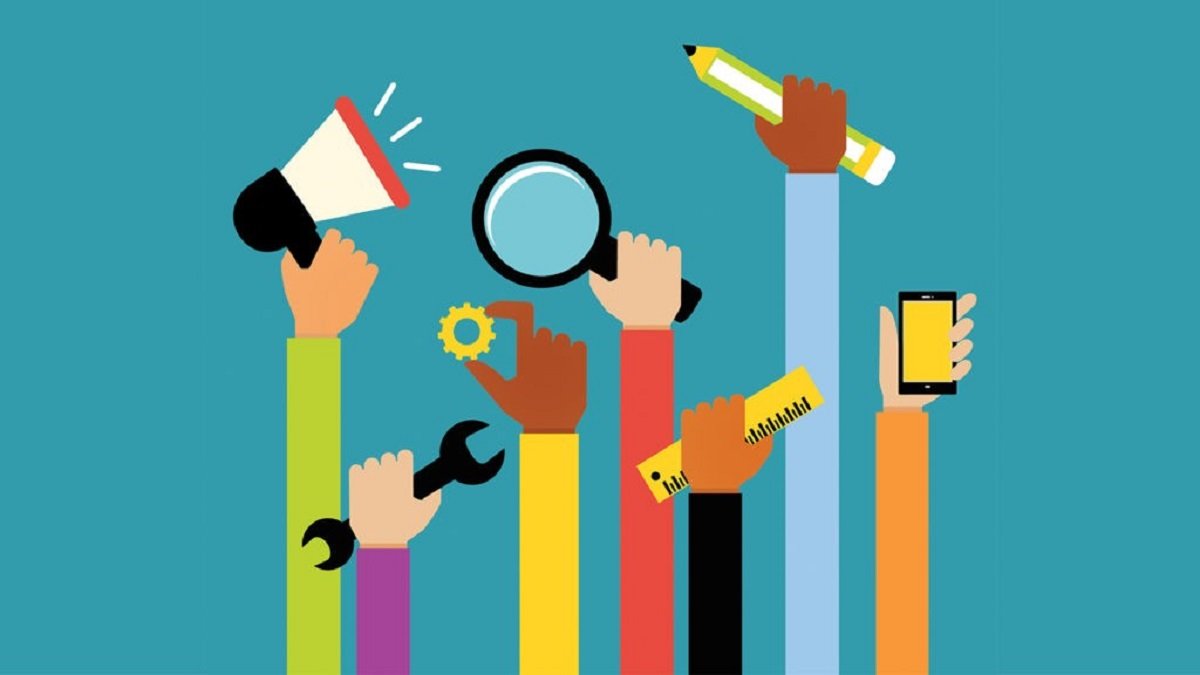The two questions that every interviewer asks are, “What skills make you different from other candidates?” and “What sets you apart from other candidates?” Strong skills are important for getting a job, but to get a well-paying job, you need some skills that go beyond the traditional work-related skills.
According to the World Economic Forum, half of the population needs to reskill and upskill in the next five years due to the double disruption caused by the pandemic, where, on the one hand, technological disruption has transformed jobs, but on the other hand, it has helped people learn and acquire new skills.
As a result, some skills, such as critical thinking, stress tolerance, flexibility, and others, are necessary to stand out from the crowd. These intangible or soft skills are the qualities that will help you answer, “What sets you apart from other candidates?”
Skills That Help You To Stand Out

1. Emotional Intelligence (EQ)
Emotional intelligence refers to the ability to recognize, understand, and manage your own emotions while empathizing with the emotions of others. Unlike IQ, which measures cognitive ability, EQ involves interpersonal skills and self-awareness.
High emotional intelligence allows you to navigate social complexities, manage relationships effectively, and make better decisions under pressure, and it is one of the skills that makes you different. Leaders with strong EQ foster positive work environments, resolve conflicts with tact, and inspire teams to achieve shared goals.
Developing emotional intelligence involves active listening, practicing empathy, and learning how to regulate your emotional responses.
2. Critical Thinking
Critical thinking is the cornerstone of problem-solving and innovation. It involves analyzing information objectively, questioning assumptions, and evaluating evidence to make reasoned judgments. In a world filled with information overload, the ability to sift through data and extract meaningful insights is a rare and valuable skill.
Effective critical thinkers challenge the status quo, identify potential risks, and find innovative solutions to complex problems. To enhance this skill, engage in activities that require strategic thinking, such as puzzles, debates, or case studies. Always seek to understand multiple perspectives before concluding.
3. Adaptability
Adaptability is the ability to adjust to new circumstances, challenges, and opportunities. As the world evolves rapidly, those who can embrace change and thrive in dynamic environments are in high demand and know what makes them unique. Adaptable individuals are resilient, resourceful, and open-minded, making them invaluable in situations of uncertainty.
Developing adaptability involves stepping out of your comfort zone, seeking new experiences, and remaining curious about the world around you. By embracing lifelong learning and maintaining a flexible mindset, you can turn challenges into opportunities for growth.
4. Digital Literacy
In the digital age, proficiency with technology is no longer optional. Digital literacy encompasses a broad range of skills, from basic computer usage to advanced knowledge of data analysis, cybersecurity, and emerging technologies. As businesses increasingly rely on digital tools, being tech-savvy can give you a significant competitive edge.
Digital literacy also involves understanding online communication etiquette, managing digital footprints, and leveraging social media platforms effectively. To stay ahead, invest in learning new software, keeping up with tech trends, and gaining certifications in relevant fields.
5. Effective Communication
Strong communication skills are essential for building relationships, influencing decisions, and conveying ideas effectively and are one of the skills that make you different. This skill includes verbal, nonverbal, and written communication, as well as the ability to tailor your message to different audiences.
Effective communicators listen actively, express themselves clearly, and maintain confidence in their delivery. Mastering this skill requires practicing public speaking, seeking feedback on your interactions, and continually refining your ability to connect with others.
6. Creativity
Creativity is the ability to think outside the box and generate innovative ideas. It’s not limited to the arts; creativity is also crucial in business, science, and technology. Creative individuals identify unique solutions to problems, develop groundbreaking products, and inspire teams with fresh perspectives.
Fostering creativity involves experimenting with new approaches, embracing failure as a learning opportunity, and exposing yourself to diverse experiences and viewpoints. Creative thinkers often combine existing ideas in novel ways, leading to breakthrough innovations.
7. Leadership
Leadership is more than a title; it’s about inspiring and guiding others toward a common goal and an answer to what makes you unique. Strong leaders exhibit vision, integrity, empathy, and the ability to make tough decisions. They empower their teams, foster collaboration, and lead by example.
Whether you’re in a formal leadership role or not, this skill is invaluable. Developing leadership involves honing your ability to communicate a compelling vision, build trust, and remain adaptable in the face of challenges. Participating in leadership development programs or taking on mentorship roles can further enhance this skill.
8. Cultural Competence
In an interconnected world, cultural competence—the ability to interact effectively with people from diverse backgrounds—is more important than ever. It involves understanding and respecting cultural differences, avoiding stereotypes, and building inclusive environments.
Cultural competence enables you to work effectively in global teams, navigate cross-cultural negotiations, and foster harmonious relationships. To develop this skill, seek out opportunities to engage with diverse communities, learn new languages, and study cultural norms and traditions.
9. Time Management
Time management is the ability to prioritize tasks, set goals, and allocate your time effectively to achieve desired outcomes. In a fast-paced world, managing your time well demonstrates reliability, discipline, and focus.
This skill requires identifying your most important tasks, eliminating distractions, and using tools like calendars and to-do lists to stay organized. By mastering time management, you can increase productivity, reduce stress, and create a healthier work-life balance.
Some Professional Skills To Make You Unique And Boost Career
Gaining new talents might provide you the skills that make you different from employers, whether you’re looking for work or want to grow in your career. Gaining in-demand abilities may improve your credentials and show that you are dedicated to your career, which will make you stand out as a candidate.
Basic coding: Programming and coding abilities have grown in value as organizations depend more and more on computers. Giving a computer precise instructions to carry out a job is known as coding. Because of their specific knowledge, workers with coding abilities may demand better compensation and often have access to additional career possibilities.
Data analysis and statistics: Typically, data analysis and statistical abilities include obtaining important data, analyzing it, and coming to insightful conclusions. These abilities are often used by employers to test the effects of production modifications or to target goods and services to certain markets. Effective data analysis enables you to resolve challenging issues and provide others with understandable, rational findings.
Project management: Employers often place a high value on project management abilities since they facilitate process optimization and increase productivity. These abilities allow you to oversee a project from inception to completion and comprehend its whole extent.
Social media and digital marketing: Being able to utilize and navigate social media and digital marketing platforms successfully may be a useful ability, especially for jobs involving digital marketing. You may use this information to engage audiences, sell goods, and expand your company, which will help you stay competitive in the job market and make you seem more appealing to employers.
FAQ
Q: What does “special skills” mean?
A: Your unique talents or qualities that qualify you for a profession are known as specialized skills. They might have a more generic function that makes them applicable in a variety of contexts, or they could have a direct connection to the role, such as technical or practical abilities.
Q: What are the sorts and significance of skills?
A: Domain-specific and domain-general skills are often used to categorize abilities. Time management, leadership and teamwork, and self-motivation are a few instances of general skills. Domain-specific abilities, on the other hand, are exclusively used for a certain task, like using a sandblaster.
Q: What are talents used for?
A: You need to be competent, capable, and knowledgeable to do jobs properly. You may cultivate these traits, sometimes referred to as skills, to help you become an expert in a certain field. Gaining this knowledge may help you succeed more in your work and other facets of your life.












Some truly interesting points you have written.Aided me a lot, just what I was searching for : D.
I’m so glad I could help! 😊 If you need any more info or have more questions, feel free to ask. I’m happy to assist!
Would love to forever get updated outstanding site! .
Thank you for your amazing feedback! I’m thrilled to hear that you enjoy the site. I’ll continue working to keep it updated with great content. Feel free to check back anytime! 😊
I believe other website owners should take this site as an example , very clean and great user pleasant style.
Thank you so much for the generous compliment! I’m really glad you find the site clean and user-friendly. That means a lot—your support is truly appreciated!
Este site é realmente fabuloso. Sempre que acesso eu encontro novidades Você também vai querer acessar o nosso site e descobrir mais detalhes! Conteúdo exclusivo. Venha descobrir mais agora! 🙂
Thank you so much for your kind words! I’m really glad to hear that you enjoy visiting the site and always find something new. I truly appreciate you sharing your excitement and will definitely check out your website as well — exclusive content is always a plus!